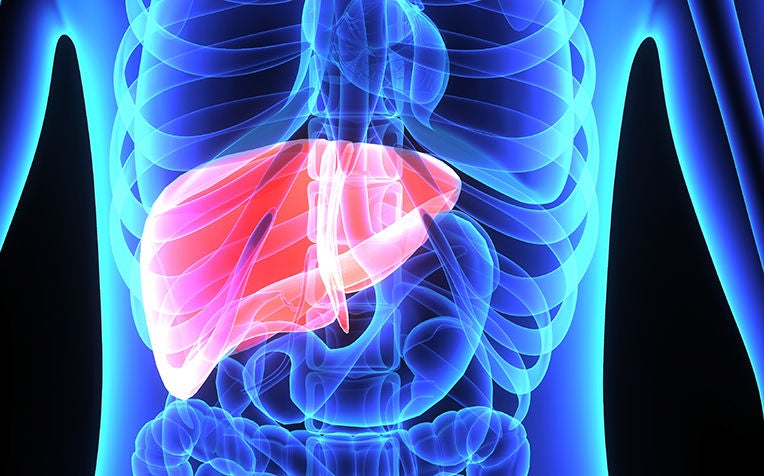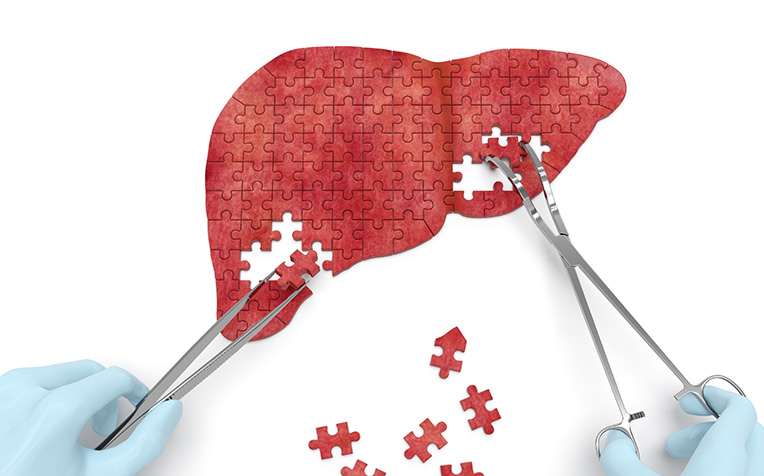
Liver cancer usually do not show any signs or symptoms until the later stages.
The liver is one of the major organs in the body. It is involved in many processes of the body to keep a person healthy. The liver is made up of many different cell types but the two main ones are liver cells (hepatocytes) and cells lining the bile ducts (cholangiocytes). The cells in the liver can undergo changes to form cancer. Most primary liver cancers begin in the hepatocytes.
Liver cancer is the 4th most common cancer affecting men in Singapore. It usually occurs in persons in the age group from 40 to 50 years old. It can affect a younger individual who has contracted chronic hepatitis B or C from birth or in those with certain congenital conditions. Liver cancer is also mainly an Asian disease, and is common in South-East Asia, China, Japan and Korea.
Risk factors of liver cancer
- A family history of liver cancer
-
Presence of other liver diseases such as:
- Liver cirrhosis (liver scarring)
- Hepatitis B
- Hepatitis C
- Regular or frequent consumption of alcohol
The liver is damaged by repeated and excessive alcohol abuse leading to liver hardening (cirrhosis) and liver cancer.
- Frequent exposure to chemicals such as nitrites, hydrocarbons, solvents, vinyl chloride which are known cancer-causing agents
Sedentary lifestyle and dietary indiscretion has led to increasing incidence of obesity and metabolic syndrome. This has led to a spectrum of liver disease, ranging from simple steatosis and cirrhosis.
Signs and symptoms of liver cancer
- Loss of appetite
- Loss of weight
- Feeling of fullness
- Generalised tiredness
- Swelling of the abdominal area
- Jaundice (yellow discolouration of the skin and eyes)
- Dark urine
- Persistent or swinging fever
The majority of patients with liver cancer have no symptoms. It is very often detected by chance as a result of an ultrasound test or CT scan for other unrelated problems. In some patients there may be vague symptoms of heaviness or discomfort in the right side of the abdomen. Pain and appetite or weight loss are usually late symptoms.
In a small group of patients, liver cancer presents itself as a sudden intense pain in the abdomen as a result of rupture of the tumour. This is usually caused by bleeding of the tumour inside the abdomen.
Screening for liver cancer
The aim of screenong is to try and detect cancer at an early stage when surgery is still possible for a cure. Based on MOH guidelines, patients with established hepatitis B or C carrier status or have liver cirrhosis would benefit from regular AFP (alpha-fetoprotein) and ultrasound examinations. These tests are usually done at 6-monthly intervals depending on the severity of liver damage, i.e. cirrhosis.
Treatment for liver cancer
Surgery is the treatment of choice for early liver cancer. However, because liver cancer is frequently associated with liver damage (cirrhosis) in the other parts of the liver due to alcohol damage or hepatitis, assessment by a hepato-pancreato-biliary (HPB) surgeon is essential, though for such patients, surgery can be difficult.
In selected cases, liver transplant is another surgical option for definitive liver cancer treatment. Radiofrequency ablation (RFA) may also be possible for limited small-sized tumours in paients who are not suitable for surgery.
When surgery is not possible, other options may help to control the tumour and attempt to prolong survival time but not “cure” the person. It is better to discuss these options with a trained liver cancer specialist who can advise you on the appropriateness of each method. Some of these options that are available at NCCS include transarterial methods such as transarterial chemotherapy (TACE) and transarterial radioembolisation (TARE) during which radiation beads are delivered directly to the liver tumour.
Systemic treatment options through the use of oral targeted therapy such as sorafenib, has also been shown to prolong patients’ survival. Many new targeted treatments and immunotherapy options have also recently been shown to have early signs of efficacy. Clinical trial options may also be discussed where available and suitable.
Ref: S13
Check out articles on other liver conditions:
Liver Cirrhosis (Liver Scarring): Causes, Symptoms and Prevention
Fat Buildup in the Liver: Why It's Bad for You

















 Get it on Google Play
Get it on Google Play